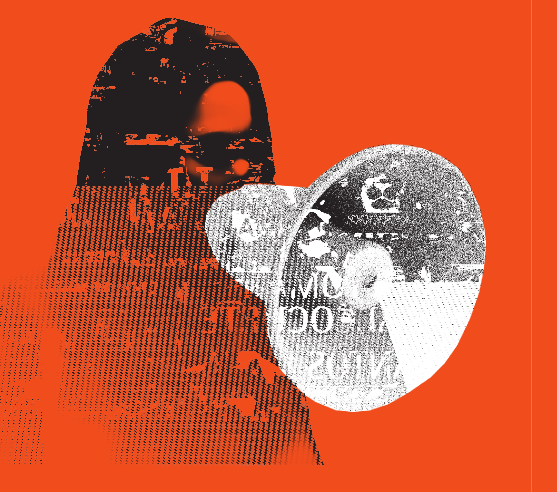
Parabible is a contemporary, provocative, yet biblically faithful paraphrase of key passages in the four Gospels. The ancient story of Jesus of Nazareth is retold as if it were happening today, in our cultural, geographical, and even political context. Thus, the Nativity scene takes place under a bridge, with garbagemen instead of shepherds and foreign diplomats instead of the wise men. But most of all, it confronts today’s readers with newly uncovered points from old gospel stories.

Alexandr Flek, BA, MTh (*1968) is known in the Czech Republic mostly as the head translator of the best-selling modern Czech Bible translation called Bible21. A sought-after speaker, activist, and author, he travels extensively in the Czech and Slovak Republics, and also internationally. Since 1994, he heads the BIBLION Publishing house in Prague. He also serves on the European board of Media Associates International, a global network of Christian authors and publishers.
Parabible was first published in Czech in November 2018 and immediately became a sensation among both religious and non-religious public, catching the attention of the national TV, radio and other media. The first two prints were not enough to satisfy the unexpected demand, and the book was sold out before Christmas.
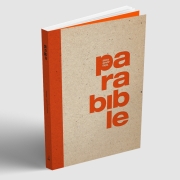
10 million Czech speakers, 25,000 copies in print = 1 Parabible per every 400 Czechs.
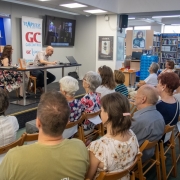
Over 70 public readings in one year, 6 TV appearances, 3 radio broadcasts and a downloadable podcast.
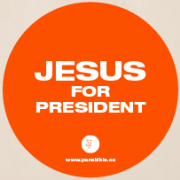
Translations under way to French, English, Russian, Polish, Slovak, and Bulgarian.
When they got closer to Alexandria, VA on the Greyhound bus, Jesús told two disciples to go on ahead to the metro station, where they would find an electric bike unlocked and parked beside the western entrance of the station. “If anyone stops you or seems to be calling the police, tell them that the president needs it, and they will immediately leave you alone.
This was to fulfil what was written in the Good Book centuries ago:
Tell the nation’s capital:
Finally, a worthy president!
Humble and kind,
Riding a bike,
Not in an armored motorcade.
The disciples did exactly what Jesús told them. They brought the charged electric bike to the bus stop, checked the tires, adjusted the seat, and set off for the capital together.
When they reached the National Mall there were already crowds of people waving signs: “JESÚS FOR PRESIDENT” Others had brought red carpets for him to ride on. The crowds grew and became rowdier. Riot police started to form a distinct presence around them. As Jesús rode past, the crowds fell in behind him shouting:
He is here!
Jesús for President!
God bless President Jesús!
The whole District of Columbia was electric with excitement over Jesús for president. Many still didn’t understand who Jesús was and asked; “Who’s the guy riding the bike?”
“Jesús Carpintero” the crowds responded. “The independent candidate from West Virginia.”
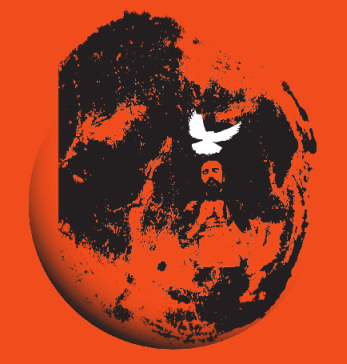
A new Bible paraphrase becomes an unexpected bestseller in Czechia
Christians around the world celebrated Easter last month – a reminder of Jesus’ death and resurrection in Rome-occupied Jerusalem some 2000 years ago. But what would it look like if Jesus lived today, among us Europeans, in the 21st century? What if he would be born in the small Czech town of Beroun, grew up in the remote regions of Silesia by the Polish border, started a popular movement among the marginalised country folks and finally arrived in Prague to confront the corrupt political and religious powers and show the world an alternative way to live in love and peace?
Those are some of the thoughts that lay behind the Parabible – a new Czech paraphrase of the Gospels recently published in Prague. Its author, Alexandr Flek – an IBTS graduate, church-planter, activist, and publisher – previously led the team of translators that produced the so-called Bible21 – the 21st Century Translation of the Bible – into the contemporary Czech language.
When Bible21 was published in 2009, it immediately became the number one bestseller in the notoriously atheist country. Encouraged by the success of the new Bible translation, Alexandr started a new congregation in Prague, comprised of previously unchurched, and also some ‘de-churched’, students and professionals hungry to hear some Good News. While preaching the Gospel pericopes to his mixed audience in one of the most secularised places on Earth, Alexandr soon realised that though the new Bible translation used quite contemporary language, its stories and sayings were still hard to understand by most listeners due to the complete lack of understanding of the Biblical cultural, historical, and religious context.
As a Bible translator, Alexandr had to be faithful to the wording of the original. Now, as a church planter, he was striving to convey the biblical metaphors in a way that would speak to a very different group of people. Explaining the historical, cultural, and theological background of the Gospel texts meant preaching long, and for some, boring sermons. Alexandr often thought: Is there a better way to communicate the power and beauty of the biblical literature to the new generation of listeners? Could we use contemporary metaphors instead of the historical ones? Could we ask ourselves what Jesus’ story would look like if he lived today? Who would trust and follow him in our time, and who would oppose him? How would I personally react to him and his teachings if he lived and walked on my street? So, using his experience as the Bible translator and expositor, Alexandr started to retell the Gospel texts instead of explaining them.
While working on his paraphrase, Alexandr had two groups of people in mind. First were those who had never read the Bible – the overwhelming majority of the Czech population today. The Bible has become as exotic and distant to them as the Quran or the Hindu Vedas. By transposing Jesus’ story and words into the contemporary Czech setting, the Parabible provides a gateway for this post-Christian audience to open and start reading the actual Bible.
The second group targeted by the Parabible are seasoned church-goers who have been raised on the Bible. They know it very well; so well that perhaps the wording of the Gospel parables and stories is so familiar to them that they no longer feel its power or the impact of the texts. For them, the Parabible offers a new and fresh way to meet Jesus and his message as if for the first time.
Thus the Parabible does not translate the words of the Bible, but rather its concepts and contexts. This reflects the way this book was born: Alexandr started to share the newly-retold pericopes on facebook, and soon hundreds of readers started to follow, comment, refine, and share them. Eachweek, a new gospel pericope based on the ecumenical lectionary reading appeared just before Sunday, and among the readers were also a number of pastors and priests who started to use them in their sermons and read them in their churches the next day. It was this community of online fans who came with the idea that the Parabible should go to print.
The book does not cover the whole Bible, though. The Parabible tells only the story of Jesus in sixty pericopes adapted from the four Gospels. Some of the well-known texts are missing, such as the parable of the Good Samaritan or the Prodigal Son. These gaps are very intentional – Alexandr hopes to infect his readers with a ‘para-virus’ so that the next time they read the Bible they will start imagining and retelling its events and sayings in their own contexts. This is actually the whole point of the Parabible: not just to put another book on the market but to inspire a fresh way of appropriating the ancient Bible texts for ourselves and making them personal and relevant for us and our friends today.
But there were also texts that Alexandr did not dare to paraphrase. One example would be the story of Christ’s Transfiguration on the Mount. He felt this was such a transcendent and mysterious situation without a parallel in our modern experience that is was best left untouched. Parabible was published in November 2018, was immediately sold out, and by Christmas the reprint also completely sold out. Many people bought whole batches to give away as Christmas gifts to all their relatives and friends. Since then until now, Alexandr travels extensively around the country (and also in neighbouring Slovakia) to conduct public readings and discussions with mixed audiences in bookstores, cafés, libraries, and churches. Currently the book is in its sixth printing (the print run totalling at 25,000 copies), and translations to Slovak, Polish, Russian, Bulgarian, and French are under way.
Written for Mission Catalyst, BMS World Mission’s magazine for thinking Christians
https://www.bmsworldmission.org/product/mission-catalyst-europe-3-19/
Christians around the world are celebrating Christmas, the birth of Jesus Christ in Bethlehem. But what would it look like if Jesus was born today, in the 21st century, in the Czech town of Beroun? This paraphrase of the birth of Jesus and other Biblical stories retold and reimagined can be found in a newly published book called Parabible. Its author is Alexandr Flek, a publisher, theologian and the chief translator of the modern Czech Bible version, Bible 21.
I asked Mr Flek to tell me more about the Parabible and the motivation behind the project:
As a translator I am always striving to communicate the message of the original text and of course in a traditional translation you are bound to the wording of the original and you have to be faithful to the original language.
Often I have thought how nice it would be to be able to say it as we say it today and maybe to use some other metaphors that are meaningful to us today. You cannot do that as a translator - hence the paraphrase.
Did you feel that people couldn’t really understand the original text or that they couldn’t perhaps relate to it?
Not necessarily, working on the Parabible I have been thinking about two groups of people. One group are those that do not read the Bible, ever. Many people, in my experience most people in the Czech Republic, have never read the Bible.
So for them, the Parabible might mean a gateway through which they might get some kind of access to the Biblical story or the message of the Gospels and they might end up opening the real Bible, not just the Parabible.
And then there is another group, which is actually a huge target group of the Parabible, and that’s people who have been raised on the Bible. They know it very well, maybe even too well, so the wording of those parables and stories is so familiar to them that they no longer feel the power or are impacted by those texts.
Was there any story that you didn’t dare to paraphrase for some reason?
Yes, definitely. The Parabible covers the story of Jesus Christ, it’s not the whole Bible. I skipped over some stories that are too notoriously well-known. For example the Prodigal Son and the Good Samaritan are missing.
I wanted to give space to the readers to create their own versions. That’s actually the whole point of the Parabible. It’s not just to put another book on the book market but to share a way of appropriating the Bible text for ourselves in a way that make those ancient texts relevant for us today.
The other type of texts were those that I didn’t dare to paraphrase. An example of that would be the Transfiguration. I just felt this was such a transcendent and mysterious situation that I found
no parallel to that in our modern experience. So I didn’t dare touch it. So there are definitely texts in the Bible that I do not understand well enough to paraphrase.
By Ruth Fraňková
Published 2018-12-28 by Radio Prague International
https://www.radio.cz/en/section/curraffrs/new-book-places-biblical-stories-in-contemporary-czechia
Spiritual literature for the 21st century
Rooseveltova 49, 160 00, Praha 6, Czech Republic